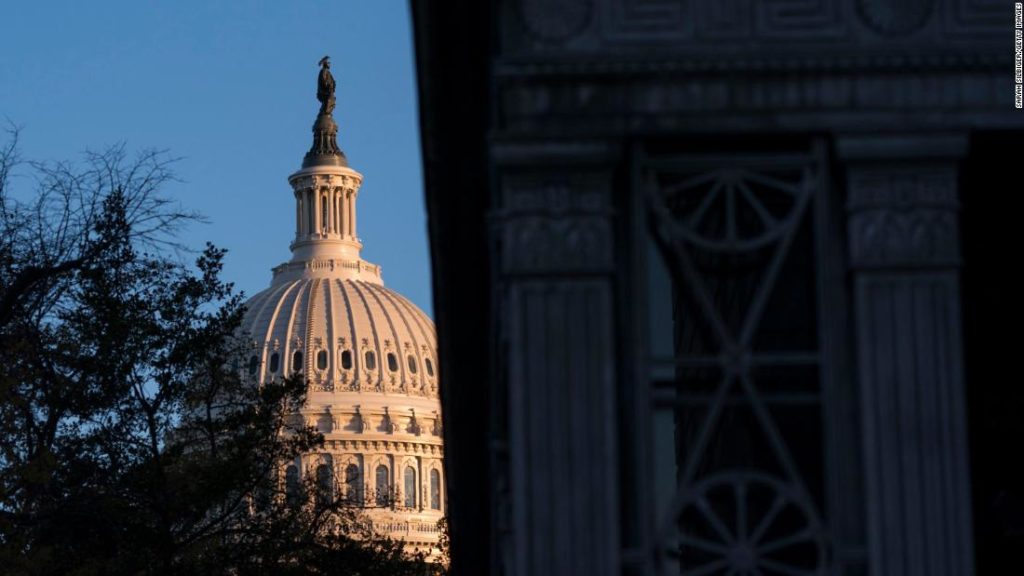
The vote, which broke down to 335-78, is a major rebuke to the President.
If the House ends up voting to override a presidential veto, that vote could be far narrower, however, because at least some Republicans are likely to change their votes in order to sustain a veto.
House Minority Leader Kevin McCarthy, who said that he would vote in favor of the bill, but would vote to sustain a veto, insisted that Republican House members will back the President if he vetoes the legislation.
“I think they would stand with the President,” he said when asked if there would be enough GOP votes to sustain the President’s position.
The $740 billion bill includes pay raises for America’s soldiers, modernizations for equipment and provisions to require more scrutiny before troops are withdrawn from Germany or Afghanistan, but that hasn’t stopped Trump’s threats against it.
On Tuesday morning, the President urged House Republicans to oppose the bill just hours ahead of a scheduled vote, saying, “I hope House Republicans will vote against the very weak National Defense Authorization Act (NDAA), which I will VETO.”
Trump’s threat to veto the annual defense bill unless Congress removes legal protections for social media companies has drawn swift and sharp bipartisan pushback from lawmakers who have argued that Trump is using leverage over the troops to settle personal scores.
The threat has left Republicans split over the issue, even dividing top House Republicans.
McCarthy said that he would not vote to override a veto of the legislation, saying, “I don’t believe Republicans, in our work with the President always, that you vote to override a veto.”
In contrast, Rep. Liz Cheney, a member of House GOP leadership, called on Monday for Trump not to veto the bill. “We ought to pass the NDAA and the President should not veto it. And we should override it,” she told CNN.
The conservative House Freedom Caucus announced on Tuesday that its members will side with Trump in his opposition to the legislation and they are pressuring other House Republicans to side with Trump, a move that could make it harder to override a veto.
Multiple House lawmakers, including the top Democrat and Republican on the House Armed Services Committee, however, have said they will cut their holiday short if necessary for Congress to return to Washington to override a veto.
House Majority Leader Steny Hoyer, a Maryland Democrat, said on Tuesday that should the President veto the bill, he believes the House will vote to override it. “I think we can override a veto, if in fact he vetoes. I hope he does not veto. I hope he reconsiders,” he said.
If Trump successfully vetoes the NDAA it would impact “special pay” for thousands of US service members across the military branches. Special pay includes raises for service members in highly-skilled positions where there is a lot of competition with the private sector for personnel.
The bill will next go to the Senate, where many Republican senators have signaled they would vote to override.
Trump has received vocal support, however, in the upper chamber from some allies.
In a series of tweets on Friday, GOP Sen. Lindsey Graham, an ally of the President’s, backed the President on his push to remove Section 230.
“I support President @realDonaldTrump’s insistence Section 230 repeal be part of the defense authorization bill,” he wrote in a three-tweet thread. “Big Tech is the only industry in America that cannot be sued for their business practices and are not meaningfully regulated. This must come to an end.”
This story has been updated with additional developments Tuesday.
CNN’s Kristin Wilson and Daniella Diaz contributed to this report.
You may also like
-
UK coronavirus variant has been reported in 86 countries, WHO says
-
NASA technology can help save whale sharks says Australian marine biologist and ECOCEAN founder, Brad Norman
-
California Twentynine Palms: Explosives are missing from the nation’s largest Marine Corps base and an investigation is underway
-
Trump unhappy with his impeachment attorney’s performance, sources say
-
Lunar New Year 2021: Ushering in the Year of the Ox

